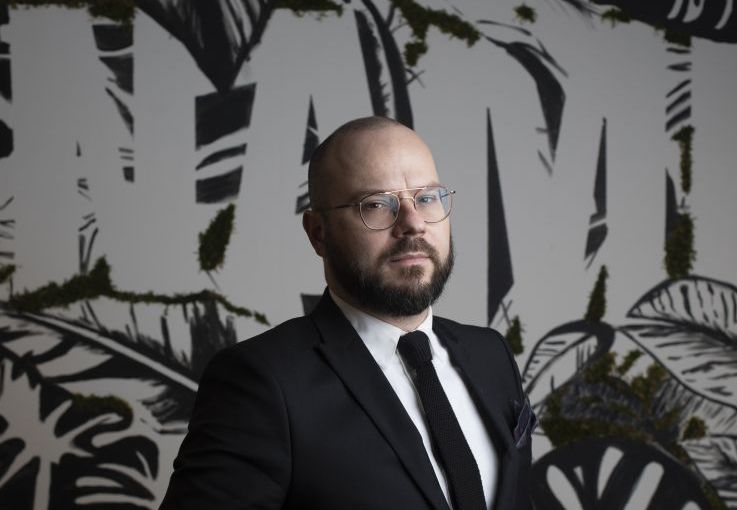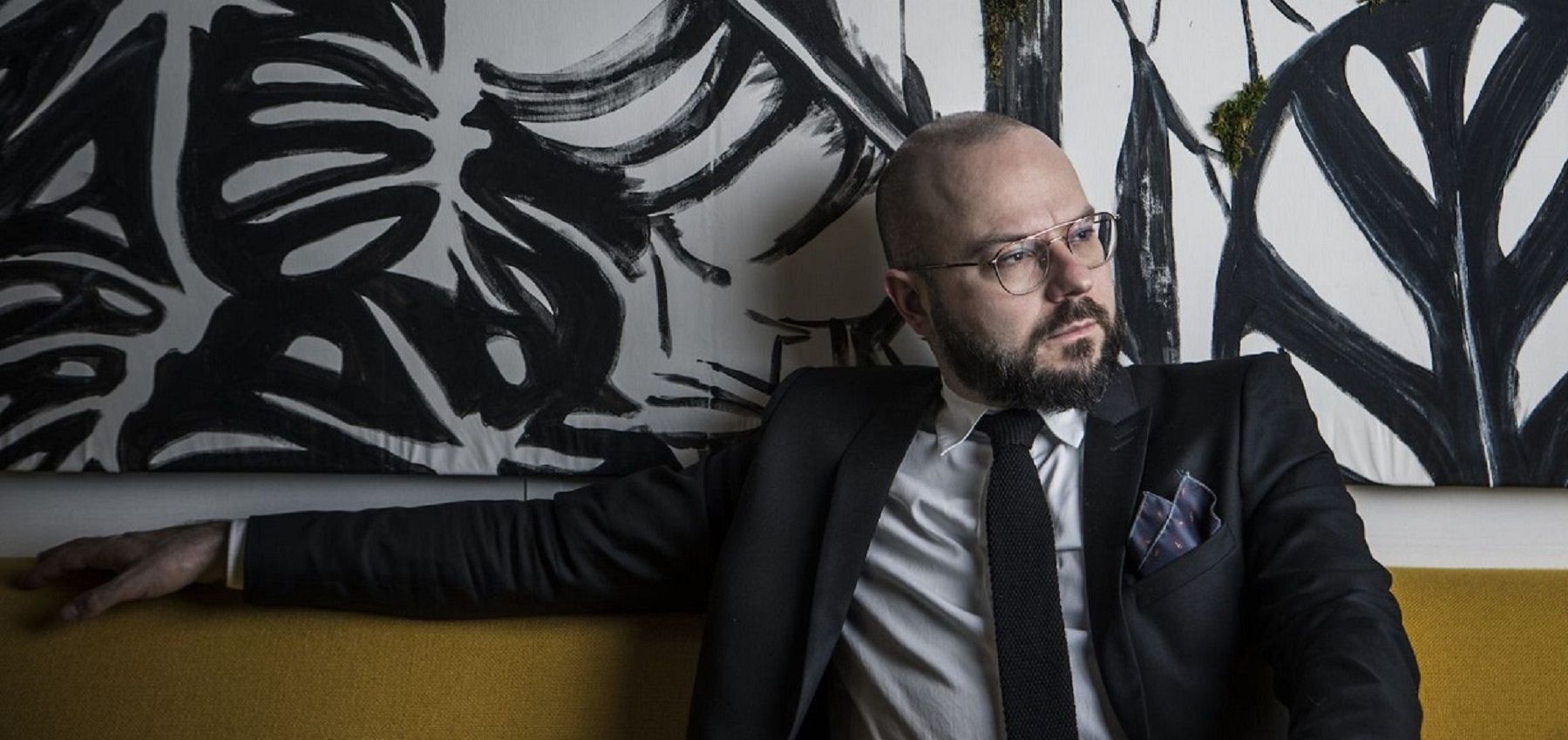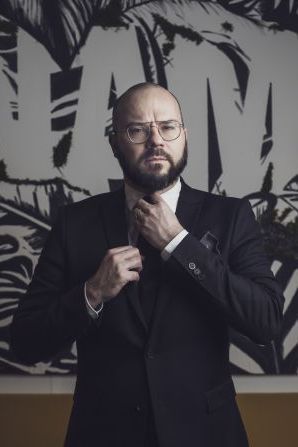“Brands can do good for society. Today, they aren’t taking enough risks”
Comments gathered by Alexandra Klinnik. Photos by Céline Levain - Mis à jour le 28 2022
Thomas Jamet
President and CEO of IPG Mediabrands France
Thomas Jamet has headed up the IPG Mediabrands France group since 2015. An expert in digital marketing, he also teaches at Sciences Po Communications School and is Vice-President of media buying and consulting union Udecam. As a result of these varied activities, he knows branded content inside out. Story Jungle met him to talk about it.
December 2018 saw the release of the new edition of your book Les nouveaux défis du Brand Content (The New Challenges of Branded Content), which focuses on "emotion marketing". In your view, what are the big challenges facing branded content?
One of the first big challenges lies in the very
definition of branded content. It is time for brands to stop considering such
content as something different from advertising. It isn't a discipline, but
quite simply a different form of interaction between a brand and an audience.
As Olivier Altmann, founder of the agency Altmann+Pacreau, puts it in my essay,
"Branded content is basically what good advertising should be: building an
emotional relationship with your audience, with the consumer feeling like they
are being entertained without being pressured to buy anything". With
branded content, we are dealing with an engaged audience, not just your average
consumer. The second challenge is one of integration: understanding that, unless
it is well distributed, good content has no chance of being seen. Good content
has to be intelligently distributed to get noticed. You have to be efficient
and integrate it in your media strategy. The final point involves technology.
Data is changing the way we produce content, particularly through DCO (Dynamic
Creative Optimization), which uses programmatic advertising to address
increasingly personalised messages to audiences. It is about combining the
creative side – magic – and the data – math – to create an impact
that really serves advertisers' strategies. "Math and magic" – reconciling the
dual imperatives of a data-driven approach and creativity – could be a new
mantra for marketing professionals.«Branded content is basically what good advertising should be: building an emotional relationship with your audience, with the consumer feeling like they are being entertained without being pressured to buy anything»
In practical terms, how can brands engage an audience that is increasingly hostile to advertising messages?
Through emotion. The advantage of branded
content is that it is neither intrusive nor constantly interrupting. We are
involved in people's lives without being invasive, because we are all about
creating value. The content is interesting in and of itself and is
developed as such. Because it is interesting, the audience are receptive to it,
seeing it as informative content. We're not imposing an unsolicited message.
It's something subtler. That's why we talk about emotions.Can you give us an example of a successful recent branded content campaign?
There is the Lego campaign we set up with Kids
United Nouvelle Génération – a music group created by UNICEF. The children agreed to sing an
original composition paid for by a brand, Pour changer le monde.
There is a music video (viewed over 2 million times on YouTube), a song and a
tour. It's a strategy that is working extremely well and it was coordinated
with the release of The Lego Movie 2. It isn't conventional
advertising; it is content that serves as publicity.Can you give us another example of a successful operation, outside of your agency?
In April 2014, food brand Fleury Michon launched
a major communication campaign entitled "Venez verifier" ("Come and
check"). Through a specific website, a Twitter hashtag (#venezvérifier),
and a series of micro-reports, they invited consumers to discover the processes
involved in manufacturing surimi, those little white and orange sticks of
seafood that don't seem particularly appetising at first glance. They adopted a
really interesting strategy, going out and meeting professionals from the
sector and urging consumers to "come and check". They created concrete,
informative, useful content that did not resemble conventional advertising. We've been hearing a lot in the media recently about harassment, with stories like the Ligue du LOL. How can advertising get a hold of the subject?
I don't think that's possible. It's so pathetic.
However, when it comes to content strategy, brand engagement has become a must
for firms that want to stand out in a highly competitive environment. You need to be able to express it in
the right way, to be as credible as you can. Not everyone can be Nike. There is always a danger when you try and speak out
on sensitive subjects, as Gillette found with the hostile reactions to its video
about masculinity.What exactly do you find so interesting about branded content?
Exploring the unexplored facets of
the brand and its service offer, above and beyond the product it is selling,
and working out how these things can be useful in the audience's lives. IBM has
grasped the importance of this, getting involved in the life of big cities
through its "Smarter Cities" campaign. They turned billboards into shelters to
protect people from the rain, ramps to save them from taking the stairs, and
benches they could sit down for a rest on. Brands have a role to play in
society, and consumers are attentive to that aspect: it should be advertisers'
primary focus.
Who is your guru?
Freddie MercuryWhat is your mantra?
Math and magic. How do you keep your chakras balanced?
By writing. I'm currently working on several projects: a political essay and maybe the script for a comic book. I also look after a music group, Electric Pyramid. Linking my job to the arts is vital for me. At the moment, there is a feeling that audiences want to rally around a shared cause – the Yellow Jackets movement, digital mobilisation. What place do the brands of today have in this environment?
Brands are beacons in the night and
they have responsibilities. I am convinced they have the power to bring people
together – not necessarily around causes, values or political struggles –, but
around shared moments of joy and happiness. I remember a terrific campaign in
2009, organised by T-Mobile in London: over 13,000 people gathered in Trafalgar
Square to sing Hey Jude by The Beatles. Those are magic moments that do
people a world of good. Brands should not try to act like institutions or
governments, because most of the time, that will backfire on them. They need to
be credible and legitimate. But they can do good for society. Today, they
aren't taking enough risks. They need to use the brand's values to transport
people, to get them dreaming.What future do you see for branded content? What are the formats of tomorrow?
Virtual reality is a magnificent opportunity for
brands, because it's a form of escapism. Though the technology is not quite
there yet, it's an important avenue to explore. DCO is another option worth
considering: the possibility of creating addressable ads via dynamic
optimisation that delivers personalised content to people with different
consumption patterns and different data. In terms of content, it already exists
via native advertising, but I am yet to see a successful large-scale
addressable advertising campaign. Finally, branded entertainment is making a
comeback, with big movie stars and famous singers joining forces with brands.
The simplest recipes work best. Artists are not as reticent as they were a few
years back. They have understood that collaborating with brands is part of
their marketing.
Today, it seems brands are really looking for cost-effective solutions. Is making branded content the answer?
Absolutely. It's an excellent way of
seeing performance as more than just a bunch of KPIs. Of course, we need some
of those, but I think you need to factor in qualitative and emotional
performance too, and brands need that little bit of soul in order to set
themselves apart. A real marriage of "math and magic" can do a lot of good for
advertisers, I am convinced of that.
bio
Thomas Jamet,
President and CEO of IPG Mediabrands France
After completing a Bachelor’s degree in Public Law from the University of Orléans, a Master’s in Philosophy and Political Sociology from Paris II – Panthéon Assas University, and a Certificate of Higher Education in European Business Law at the University of Abertay (Dundee, Scotland), Thomas Jamet was admitted to Sciences Po Paris, graduating in 2002 with a Master’s in Communications. He worked with a number of major corporations before taking the helm of IPG Mediabrands France in 2015. He is also Vice-President of media buying and consulting union Udecam.









Suivez-nous
|